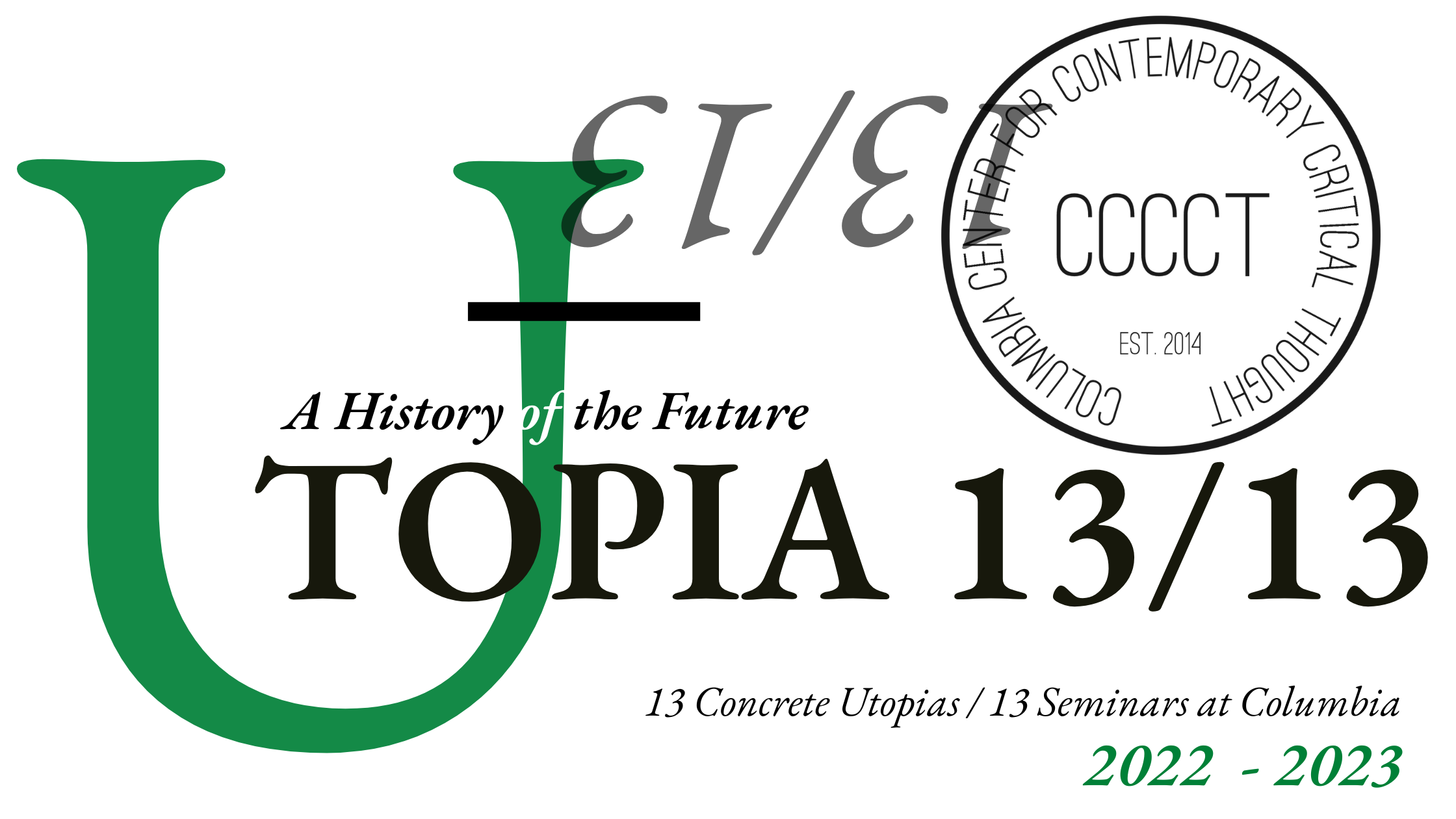Fred Moten, Nadia Abu El-Haj, Kaiama Glover, Gary Wilder, and Bernard E. Harcourt
discuss
“Concrete Utopianism“
Tuesday, February 21, 2023
Maison Française, Columbia University
This year at Utopia 13/13, we are studying concrete utopias. We are trying to lay a critical theoretic foundation (which was where we started the first semester with Etienne Balibar and the second semester with Noam Chomsky). And we are exploring material instantiations of concrete utopias (from Cooperation Jackson in Jackson MS to union organizing right here on Columbia’s campus, passing through worker cooperatives, eco-farming cooperatives, solidarity economies, and cooperation writ large).
Tonight, we focus our seminar on another critical theoretical foundation, the notion of “concrete utopianism” as developed in the book Concrete Utopianism: The Politics of Temporality and Solidarity, by Gary Wilder, published by Fordham University Press in 2022. Concrete Utopianism advocates for a turn away from certain strands of contemporary critical theory—such as negative dialectics, Afropessimism, and cultural strands of postcolonial thought—and for a turn or return to more constructive political forms of critical and practical engagement.
This book forms part of a contemporary rebirth of new forms of utopianism that can be labeled “concrete utopias” (by Étienne Balibar, earlier by Ernst Bloch in The Principle of Hope, and in this seminar), or “real utopias” (as in Erik Olin Wright’s book Envisioning Real Utopias (2010)), or “practical utopias” (as in Noam Chomsky’s preface and Michael Albert’s book Practical Utopias), or in terms of the French expression “utopier” (as Laëtitia Riss will suggest at Utopia 11/13 in Paris). The exact term we use has implications, but the overarching thrust of this “movement,” we might call it, is to revive, within critical theory, a turn to praxis.
In this session, we are joined by Nadia Abu El-Haj, Kaiama Glover, Fred Moten, and Gary Wilder to explore the notion of “concrete utopianism.”
Welcome to Utopia 7/13!
